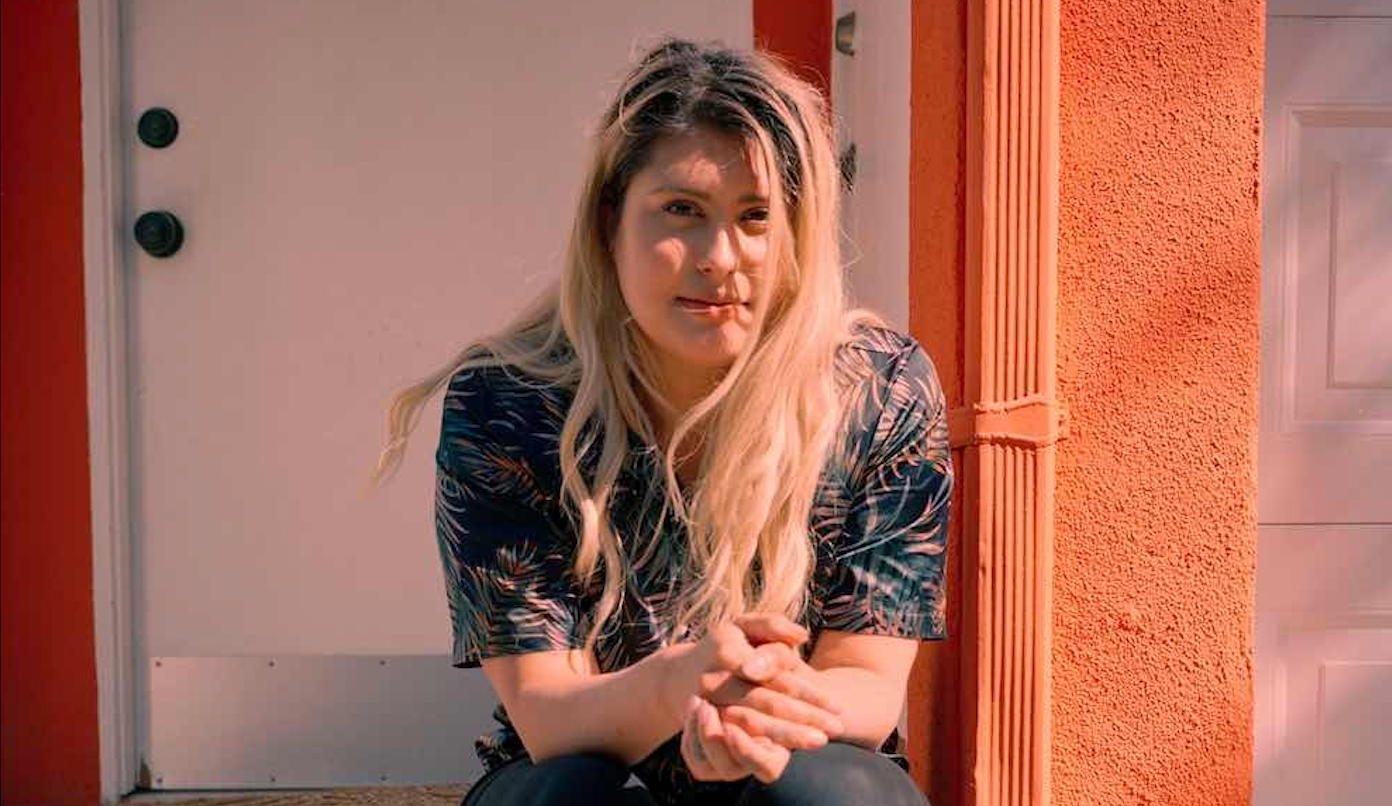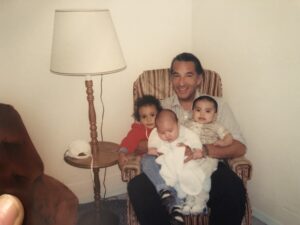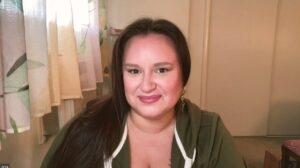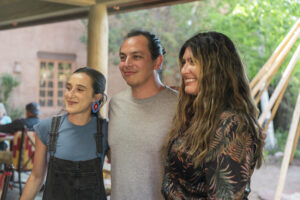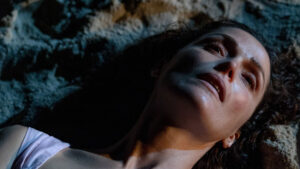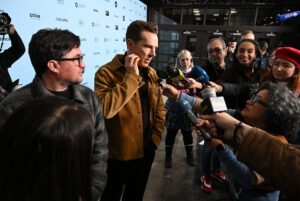Alexandra Lazarowich photo by Sam Richardson
By Adam Piron
In keeping with our celebration of Native American Heritage Month, we have been looking at the work of Sundance Institute’s Indigenous Program artists over the past year, their creative and professional journeys, as well as their hopes for the future of their careers. I was fortunate to be able to sit down for a conversation with Alexandra Lazarowich — a current advisor for our Native Lab Fellowship, an alum of the Lab itself, and the 2019 Sundance Film Festival winner of the Special Jury Prize for Directing for her short film Fast Horse.
As an artist, Alex is someone whose work we have watched and admired, and the reward has been seeing her growth as a filmmaker over the past few years. Her journey has been an inspiration to many in our community and beyond. Here is an excerpt from our conversation.
Can you talk about how you came to Sundance and how you made your way to the Indigenous Program?
I feel like, for a lot of people, there’s an expectation that things happen really quickly.That you get picked to be in Sundance, or you get picked to be a part of the lab because you wrote something for the first time, or you made a film for the first time that you think is really incredible. Earlier in my career, I submitted quite a few films to Sundance and [they] weren’t selected. I think reminding other filmmakers that that’s also a part of the journey is really important. My skill set probably wasn’t there, but I was still making work. And I didn’t stop making work.
When I made Fast Horse I think we had very low expectations for the film itself. And then, surprisingly, we got into Sundance. And then, an even bigger surprise, was winning the Special Jury Prize for Directing. I think none of us believed it was even possible. And I hadn’t done a Sundance fellowship, but had been submitting for a couple of years with some projects and always got to like the second round, or the project just wasn’t right that year, so I feel like it was really special.
After that COVID hit, and a couple of years later I submitted my feature film, which is a rom-com, and got into the Sundance Native Lab, which is really amazing, because I got to be in a fellowship with so many talented people like Erica [Tremblay], Tommy Pico, and Miciana [Alise]. It was just such a good cohort, and we were all living in COVID times, and really had time to write and develop our projects. It’s been really exciting over the past couple of years to see people’s careers explode after that opportunity. Like Erica’s film Fancy Dance, and Tommy and Reservation Dogs and Miciana who co-wrote Fancy Dance. It’s been really exciting to see the growth that has come out of that cohort of fellows.
Including myself in that, I am still working on trying to get my rom-com off the ground, but I’ve moved into writing and producing more work and directing more of my own projects. This year I was able to be a mentor to a whole cohort of fellows who are extremely talented and bring so much passion and talent, but also unique perspectives. I think that’s what is really exciting about Sundance’s Native Lab, it offers the opportunity for varying voices to be heard and shared — and develop people’s talents within a safe space.
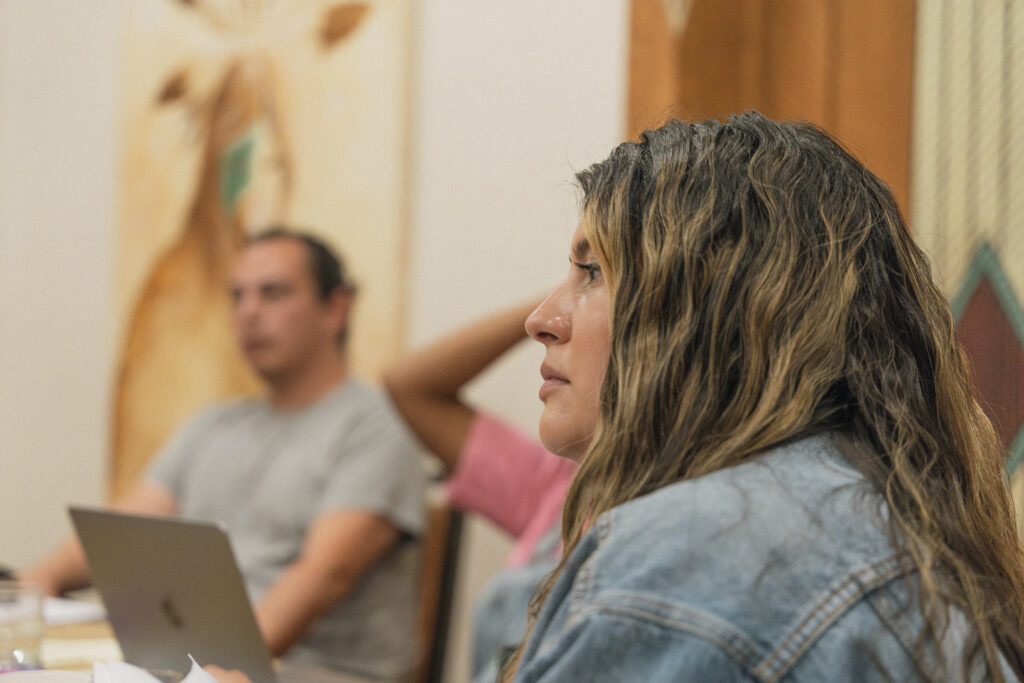
You talked about your rom-com and how you are still working on getting it out there. With working on it through the Lab, what were some opportunities that came out of that, from both working on that script, but then also the cohort that you had, and some of the folks that were involved?
What’s really great about the lab is everyone gets to connect with their mentors, but also connect with other people in the room. Tommy and I had known each other loosely before we were in a cohort together, but he was able to read my work, I was able to read his work and through that process,Tommy has put out the good word for me with the people that he’s working with. That sort of friendship building, but also interconnection, is really important, especially in the industry. I feel like that’s been one of the really cool things that has come out of the cohort.
I think a lot of the time, there’s an expectation that you’re going to be plucked from obscurity by some network executive or some talent agent, or something like that, but I feel like often it’s people who like you, like your work, and think that you have talent. They put your name forward to somebody who’s looking for somebody to work on a TV show, to be a writer, to be a director, and that’s where a lot of the opportunities have come out of.
My rom-com worked as a very good spec script for me. To try to get more work in the industry as a writer, and also just trying to get more work as someone who’s a writer and director. So I think the opportunities have been twofold. But I really think what’s special are the friendships that we build and the connections you build within your own cohort — and then through just knowing other people who’ve also been in Sundance.
Was there any sort of before and after, with the Native Lab in terms of how you approach your own work as an artist?
I think [the lab] gave me more confidence to see myself as a writer. Because writing is very difficult and I admire people who love it and enjoy it. But it’s hard, and you’re trying to get ideas out… andalso be authentic to the stories that you’re telling. So I definitely think my writing skills have grown exponentially since the lab. And, from all the wonderful mentors I had and also through the process of securing work, being a writer on a TV show has also grown my skill set exponentially. All of them are little building blocks that help you to be better at your job.
Looking back it feels just like yesterday, but also a million years ago when I was in the lab. I learned so much from the mentors, I learned so much from the other fellows in the lab, and I was able to take what I’ve learned and apply that to the work that I’m doing now for other people.
Is there a dream project you have that you would want to work on either from a directorial view, or writing, or both?
I would really like to have somebody fund my rom-com. I think this has been a lot of Indigenous folks’ experiences; it’s a long game of getting your work made and you have to stick to your beliefs, and really believe strongly in the work that you’re making, and that it’s important. So I think for me there are a couple of dream projects. Specifically, I would really like to make this rom-com. I’m still surprised no one has made a rom-com about Indigenous folks… I feel like there’s still such a gap missing. There’re a lot of historical films being made about Indigenous folks, but where are the fun comedies that are one off films? And where are the stupid Christmas movies that represent our experience and that share the larger modern interpretation of what it means to be Indigenous and what Indigenous Christmas looks like? What Thanksgiving looks like?
Those are the types of films that I want to make and I really want to see. I’m excited because it feels like the tide is turning a little bit. I think, with the success of Fancy Dance and Reservation Dogs, people can see the talent out there and are interested in these stories… So much groundwork has been laid by a lot of people to get us here.
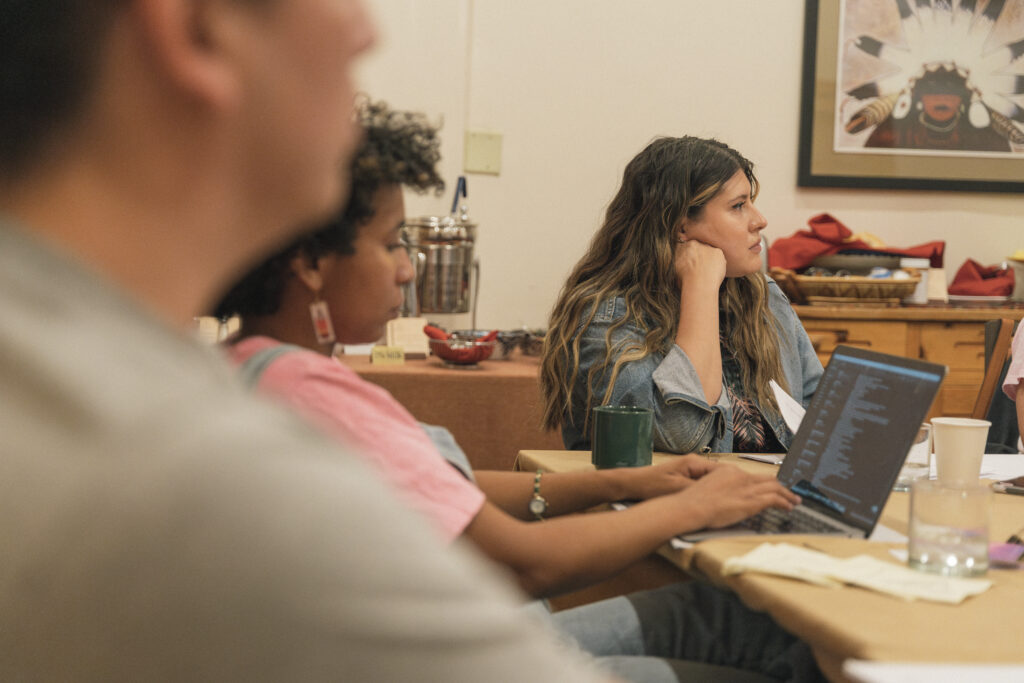
What do you see as potentially being the next step for Indigenous filmmakers or people working in TV in terms of sort of this new era that we’re going into?
Thinking about this and talking with friends and other filmmakers, I think we have to figure out a way to have more Indigenous people be in charge of major production companies. I think we have to figure out a way for more Indigenous people to move into network jobs, and work as executives for streamers and for these big corporations… because, ultimately, the decisions that get made to green light anything, whether that’s a TV show, whether that’s a film really comes from boardroom executive spaces. That’s the last horizon that we need to figure out how to access and how to get people who understand Indigenous people, Indigenous stories, and also understand the way that Indigenous directors and artists and filmmakers often tell these stories, which may not be linear or may not be in an act structure, and be able to advocate for us at that level.
I also think having Indigenous folks who are executives and agents, and have a completely different understanding of what Indigenous filmmakers are trying to do. Those people need to be at that level in order to engage and talk with people who are not Indigenous to explain why we make the choices that we make and why community connection is important and why building relationships is important and why having ceremony included, often included in film shoots and TV shows is really important to us. Depending on which community you’re in, all of those things are things that oftentimes gets put on the filmmaker and that’s a lot of work and a huge burden to carry. And honestly, that’s a second job for a lot of directors and writers to have to keep constantly explaining why we make the choices we make and why it’s important to engage the community, and why it’s important as we buy blankets for people, and why we take care of the elders, and why they eat first. All of these things that come with emotional labor as an Indigenous person when you’re making something with somebody who is not Indigenous, and didn’t grow up near the culture or knows anything about the culture. I think having Indigenous folks be in these executive spaces can help be that voice, and also be at the same level of other executives, in order to explain specific decisions that are made.
I really think that, in my opinion, the next level of making sure that projects are greenlit that are actually made by Indigenous people, that reflect Indigenous people authentically. And I think having people in those spaces is the next big step that we need to get to. Once we hopefully craft that then we’ll have more projects greenlit, and it won’t be just one TV show or one film that’s held up as the only thing.
It’s interesting because, I think we, like collectively, when we have only one thing that is the thing that’s indigenous, and it’s really notable,it doesn’t allow for criticism of that art because it’s the only thing. And criticism is important, because that’s what makes us better filmmakers. Artists help us engage in the world that we live in.We haven’t reached a critical mass yet where we can be critical of projects because there are so many out there, and we can engage in conversations about, you know, is this show or movie working from an Indigenous perspective, is it not? And I think that’s one of the things that we just haven’t reached yet, is we haven’t reached that sort of critical mass. Hopefully, in the future there’ll be a thousand things to be held up, because there are so many artists who are making things and are making really good things and have the opportunity to be extremely creative and make any genre they wanna make.




